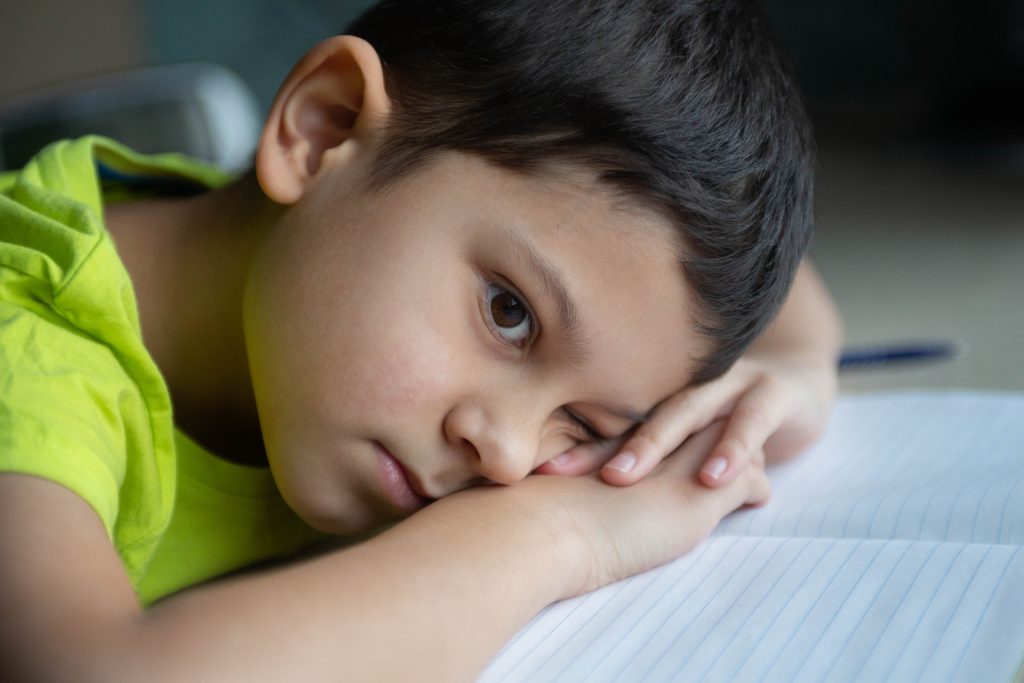Burnout refers to a condition that arises from a chronic stress that has not been properly managed. Typically, this condition is characterised by a depletion of energy, reduced work competence as well as pessimism towards one’s work/study (International Classification of Diseases).
Nevertheless, a burnout is not similar to the stress that someone may face when dealing with a difficult task. This is often a tension that is built up and pent up over a long period of time causing the sufferer to burst when they cannot handle it anymore.
While this is commonly associated with working adults, nowadays, the number of youth and children facing burnout has gotten higher due to academic and peer pressure. As students are expected to do well in their studies, while still having a good extracurricular activity involvement, many are now spending more than 14 hours per day studying and going to extra classes with only a few breakdowns. All so that their achievements will look good on papers for admission into good uni and established companies.
It is undeniable that pressure can be a motivating factor for children and youth to achieve their goals. Nonetheless, when they are constantly pitted against their peers, this can be harmful. In the scenario where they are unable to perform as good as some of their friends despite working hard, this may take away their sense of accomplishment. It makes them feel like a failure instead, for not being able to meet expectations.
To make matters worse, sometimes parents and teachers do not regard burnout as something ‘real’.Thus, they would expect their children to just get over it. However, if burnout is not given attention to or treated sooner, this may worsen students’ mental and physical health. In extreme cases, burnout may also also lead to suicide.
The current movement control order that prohibits schools and universities to open may exacerbate this problem too, as many students find it difficult to communicate through screen and learn at home. This is especially true for those who are sitting for important examinations such as the IGCSE, SPM, and Alevels who need more academic support. University assignments can also be very taxing to do alone. Students are unable to go to the library to look for physical resources, they have to discuss everything online, and engagement time with their lecturers are lesser too.

Moreover, burnout can also be caused by external factors such as family issues and financial problems. Some students, especially those living in a more rural area without internet connectivity and learning devices can also be left behind although they may have done very well at school and uni.
As adults, we should not take burnout lightly. Talk to your children, and if they exhibit some of the signs below, then be ready to talk to them and help out :
- They always look tired or lethargic
- They are easily irritated
- Their performance is deteriorating
- They have problem focusing and easily distracted
- They are more distant from friends and family
- They are no longer enthusiastic about things that they used to enjoy
- Sometimes they binge eat, sometimes they refuse to eat
- Insomnia
- They often look anxious and unsure of what they have to do next
More often than not, students do not realise or want to admit that they have a burnout because it may be seen as a sign weakness. Hence, parents and friends are usually the key figures to preventing student burnout. Hence, if you recognise the symptoms above, these are some of the things that you can do to help:
Lend your ear
Ask your children what they are currently working on and how they are dealing with it. If they refuse to tell you, give them time and tell them that it is okay for them to take a breather. Remind them that it is better to not to chew more than what they can bite. Some children work hard because they do not want to disappoint their parents. When you show empathy towards your children, they are more likely to feel more comfortable expressing their feelings towards you.
Encourage them to do things they enjoy and remind the to rest
Even if that thing is something you think is wasting time like playing video games or watching Korean drama, allow your children to enjoy their ‘me-time’. They should also get enough rest and sleep. This will make them feel more refreshed and ready to take on their tasks!
Get them to exercise and go outside!

To clear their minds from overbearing study load, bring your children out to the park for a quick jog or some leisure walk. Yes, you read that right! Join them as they exercise rather than just telling them to do so. Harvard noted that exercise aids the production of endorphin hormones that are known as mood elevators.
Studies show that spending time in nature also helps to reduce stress level so this is certainly something that your child should consider doing.Just make sure that you are following the SOP when you go out! Keep that mask on and keep a safe distance from others.
Burnout is preventable as long as someone is able to manage their time accordingly. However, often students do not know how to seek for help when they are experiencing burnout. Thus, it is our responsibility as adults to help our children to tackle this problem.








